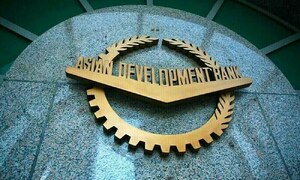In my opinion there is no substitute to privatisation in order to achieve greater micro-economic efficiency. The GDP rate grows smoothly with privatisation as opposed to nationalisation programme that had dropped the GDP growth rate in Pakistan. If one goes through the list of nationalised industries, he would find that a large number of them has either been closed or are causing a huge loss to the national exchequer.
Truth prevails that the privatisation - transparently structured - gives positive and enduring benefits. Divestiture is always good for the economy and leads to higher productivity and faster growth. Apply any economic or advanced measuring tool to the process of privatisation, nowhere in the world, private-sector's induction in state-run entities and industries has yielded negative results, especially from the angle of providing relief and a strong, vibrant support and sustenance base to the masses. The fact is that private sector, all over the world, has remained to date the biggest employment sector and a big source of sustenance for the poor and the downtrodden.
The privatisation means growth, economic expansion and competition. Competition becomes non-existent in government sector. And where there is inefficiency, there is economic stagnation, which directly leads to backwardness and economic bereavements among the masses. Privatisation always helps governments in meeting national objectives by ensuring equitable distribution of resources and growth, and last but not least, by harnessing partnering private sector entrepreneurial skills in achieving management efficiencies.
New Zealand, the UK, Mexico, and Chile are all successful privatisers. Their privatisations were accompanied by reforms to open markets, remove price and exchange rate distortions, and encourage the development of the private sector through free entry.
Successful privatisations of large enterprises have entailed breaking them into competitive and marketable units (in East Germany, Argentina and Mexico), bringing in dynamic private sector managers (in many telecom and airline sales around the world), settling past liabilities. Successful privatising governments also assiduously avoided large new investments for plant modernisation and equipment, since getting the private sector to finance and manage these investments was itself a major reason for privatisation.
The situation in a number of Public Sector Enterprises in Pakistan has gotten from bad to worse under the government-ownership, and only privatisation programme can save them as it would inculcate a sense of competition that would drive improvement. The issue of misgovernance and corruption resulting into huge losses in the state owned enterprises and drain on the national exchequer and once the privatisation is done, the loss making SOEs would start generating profit.
BR100
15,085
Increased By
112.5 (0.75%)
BR30
44,012
Increased By
987.7 (2.3%)
KSE100
148,618
Increased By
1274.3 (0.86%)
KSE30
45,248
Increased By
370.7 (0.83%)





















Comments
Comments are closed.